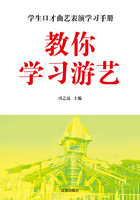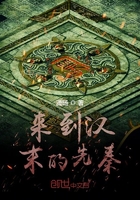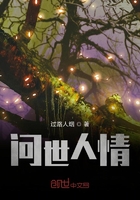Midas, son of the Great Goddess of Ida, by a hero whose name is not remembered, was a pleasure loving King of Macedonian Bromium, where he ruled over the Brigians and planted his famous rose gardens.
One day, the old hero Silenus, Dionysus’ former teacher, happened to straggle from the main body of the Dionysian army as it marched out of Thrace into Boeotia, and was found sleeping and drunken in the rose gardens. The gardeners tied him and led him before Midas, to whom he told wonderful tales of a big continent lying beyond the Ocean’s stream—altogether separate from the united mass of Europe, Asia, or Africa—where gigantic, happy, and long lived people lived in splendid cities, enjoying a wonderful law system. Midas, delighted with Silenus’ fictions, entertained him for five days and nights, and then ordered a guide to lead him to Dionysus’ headquarters.
Dionysus, who had been worrying about Silenus, sent to ask how Midas wished to be rewarded. He replied without hesitation. “Please turn all I touch into gold.” However, not only stones, flowers, and the furnishings of his house turned to gold but, when he sat down to table, so did the food he ate and the water he drank. Midas soon begged to be freed from his wish, because he was fast dying of hunger and thirst. Highly amused, Dionysus told him to visit the source of the river Pactolus and there wash himself. He obeyed, and was at once freed from the golden touch, but the sands of the river Pactolus are bright with gold to this day.
Vocabulary 词汇
straggle ["str?gl] vi. 分散,蔓延,散乱分布,掉队
n. 散乱的一群
continent ["k?ntin?nt] n. 大陆,洲,(the Continent)欧洲大陆
gigantic [d?ai"g?ntik] adj. 巨大的
splendid ["splendid] adj. 极好的,辉煌的,壮观的,杰出的
furnishing n. 装备,服饰,家俱;
v. 供给,陈设(furnish的ing形式)
amused [?"mju:zd] adj. 愉快的,顽皮的,被逗乐的;
v. 逗笑,使欢乐
Practice
Reading the Golden Touch from Hawthorne N..
译文
弥达斯是伊达山大女神和一位姓名不详的英雄的儿子。他是马其顿勃洛弥恩的好寻欢作乐的国王。他统治勃里癸亚人民, 种植闻名遐迩的玫瑰花。
一天,狄俄尼索斯酒神和追随者从色雷斯出发去维奥蒂亚。狄俄尼索斯以前的老师森林之神老西勒诺斯不巧跟队伍走散了。他喝得醉醺醺的,躺在弥达斯的花园里酣然大睡。园丁发现了他, 把他捆起来领去见弥达斯。他给弥达斯讲述有关大洋河彼岸的、与连成一片的欧罗巴、亚细亚或阿非利加完全脱离的一个大洲的奇妙的故事。大洲上坐落着神奇的城市,居住着身材高大、幸福而长寿的人民,拥有值得赞颂的法律制度。西勒诺斯的故事使弥达斯听得欣喜若狂。他盛情款待老山神五天五夜,然后派向导护送他回到狄俄尼索斯的大本营。
狄俄尼索斯一直在为西勒诺斯担心。现在,他派人问弥达斯有什么要求,他应该怎样报答他。弥达斯毫不迟疑地回答说:“请恩准使我摸到的一切都变成金子。”然而,变成金子的不仅仅是石块、花朵和屋内的陈设。他坐下吃饭时, 他吃的食物和喝的水也都变成了金子。过了不久,弥达斯恳求狄俄尼索斯使他从他的愿望中解脱开来,因为他饥渴交加,快死了。狄俄尼索斯逗弄了弥达斯,开心得很。他叫弥达斯前往帕克托罗斯河的源头,在河里洗个澡。弥达斯依照行事,立即解除了点金术,但帕克托罗斯河的沙子至今因含金而闪闪发光。
练习
找来霍桑的同名童话《点金术》课下阅读。
11 God Bless You 上帝保佑你
The only survivor of a shipwreck was washed up on a small, uninhabited island. He prayed feverishly for God to rescue him, and every day he scanned the horizon for help, but none seemed forthcoming.
Exhausted, he eventually managed to build a little hut out of driftwood to protect him from the elements, and to store his few possessions. But then one day, after scavenging for food, he arrived home to find his little hut in flames, the smoke rolling up to the sky. The worst had happened, everything was lost.
He was stunned with grief and anger. “God how could you do this to me!” he cried. Early the next day, however, he was awakened by the sound of a ship that was approaching the island. It had come to rescue him.
“How did you know I was here?” asked the weary man of his rescuers. “We saw your smoke signal.” they replied.
It is easy to get discouraged when things are going bad. But we shouldn’t lose heart, because God is at work in our lives, even in the midst of pain and suffering.
Remember, next time your little hut is burning to the ground it just may be a smoke signal that summons the grace of God. For all the negative things we have to say to ourselves, God has a positive answer for it.
Vocabulary 词汇
shipwreck ["?iprek] n. 海难,遇难船;
vt. 使失事,使毁灭
feverishly ["fi:v?ri?li] adv. 狂热地,兴奋地
driftwood ["driftwud] n. 浮木,流散板,废弃物
adj. 漂流木的
scavenging ["sk?vind?i?] n. 清除,净化;
v. 打扫,排除废气(scavenge的现在分词形式)
awaken [?"weik?n] vt. 唤醒,使……意识到;
vi. 醒来,意识到
summons ["s?m?nz] n. 传唤,召集,传票;
vt. 唤出,传唤到法院
Practice
Why we shouldn’t discourage when things are going bad?
译文
在一场船难中,唯一的生存者随着潮水,漂流到一座无人岛上。
他天天激动地祈祷神救他能够早日离开此处,回到家乡。
他还每天注视着海上是否有可搭救他的人,但除了汪洋一片,什么也没有。
后来,他决定用那片带他到小岛的木头造一个简陋的小木屋以保护他在这险恶的环境中生存,并且保存他所有剩下的东西。但有一天,在他捕完食物后准备回小屋时,突然发现他的小屋竟然陷在熊熊烈火之中,大火引起的浓烟不断向天上窜。
最悲惨的是,他所有的一切东西,在这一瞬间通通化为乌有了。悲痛的他,气愤地对天喊道:“神啊!你怎么可以这样对待我!”顿时,眼泪从他的眼角中流出。第二天一早,他被一艘正靠近小岛的船只的鸣笛声吵醒。是的,有人来救他了。到了船上时,他问那些船员说:“你怎么知道我在这里?”
“因为我们看到了信号般的浓烟。”他们回答说。
人在碰到困难时,很容易会沮丧。但无论受到折磨或者痛苦,都不用因此失去信心,因为上帝一直在我们心里面做着奇妙的工作。
记住:当下一次你的小木屋着火时,那可能只是上帝美妙恩典的表征而已。在所有我们认为负面的事情,上帝都是有正面答案的。
练习
为什么我们遇到困难时不必沮丧?
Because for all the negative things we have to say to ourselves,
God has a positive answer for it.
12 Why the Water of the Sea is Salty 海水咸的原因
A long time ago, far, far away, there lived two brothers. One of them was quite rich: the other was very poor. The rich brother lived on a little island; he was a seller of salt. He had sold salt for many years and had got a great deal of money. The other brother was so poor that he had not got enough food for his wife and children.
His wife said: “What will happen to us? Do you want me and the children to die? There is nothing to eat. Why don’t you go and ask your brother for some money.”
“My brother loves his money very much. I’m sure that he will not give me any. Perhaps he will want to give me a handful of salt. But I will go and see him.”
He got into his boat and sailed across to the island where his brother lived.
He found his rich brother at home, counting his money.
“What is the matter? Why have you come here?”
“Please, brother, I have no food in my house. Please give me one of those gold pieces you are counting.”
“No. These are mine. You are very lazy. Why do you not go and work?”
“I have tried to find some work, but I cannot. Now there is no bread in my house for my children.”
“I will not give you any money, but I’ll give you some bread. If I give you a loaf of bread, will you go away and not come back?”
“Yes. Please give me the bread.”
The rich man threw a loaf of bread to him, and he went away.
While he was on his way to his house, he came to an old man sitting by the side of the road.
“What is that you are carrying?” said the old man. “Is it bread? I have not had any thing to eat for two days.”















